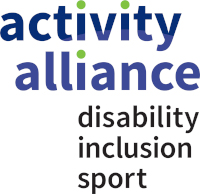Title
Exercise referral schemes and dropout rates/reasons
Research Area
Health; Tackling Inactivity
Author
Kelly, M C et al; Journal of Public Health
Summary of Findings
Exercise referral schemes have been known to suffer from high levels of dropout and this research aimed to fill an insight gap and increase knowledge of why this is the case. Patients in South Tyneside were selected for an exercise referral scheme based on their current health. Those selected where deemed as either tier 2 (having low-moderate comorbidities and a BMI >28 kg/m2), or tier 3 (having moderate-high comorbidities with no criteria for BMI). Once selected data was additionally collected on their current smoking status, alcohol consumption, physical activity level and perceived barriers to physical activity. The exercise referral scheme provided each participant with an tailored exercise plan with follow up consultations after 6 and 12 weeks.
Overall 37.8% of participants had dropped out by the 6 weeks assessment and 50.3% had dropped out by the 12 week assessment. Nearly 47% of males and 52% of females dropped out while those who dropped out were on average younger than those who completed at least 12 weeks. Primary care referrals had 51.1% dropout compared with 35.1% of secondary care referrals. Referral reason also played a factor in dropout rates: - nutrition (89.9%) - exercise (46.6%) - mental health condition (57.7%) - musculoskeletal (50.9%) - cardiovascular (48.1%) - other (50.9%) 51.5% of those in referral tier 2 dropped out compared to 46.5% of the tier 3 referrals. Of those who drank alcohol, the lowest dropout rate was found in participants drinking moderate levels (44.5%), followed by hazardous levels (45.2%), non drinkers (52.5%) and those drinking to a harmful level (61.2%). After 6 weeks the strongest predictors of dropping out were being a smoker or being a tier 3 referral. Meanwhile older people, those that drank alcohol and those reporting "lack of time" as a potential barrier had a decreased likelihood of dropping out. After 12 weeks the strongest predictors for dropping out were again being a smoker or a tier 3 referral. Meanwhile older people, those who drank alcohol, those referred through secondary care, those reporting "lack of time" as a potential barrier and those reporting "lack of childcare" as a potential barrier had a decreased likelihood of dropping out.
Implications
As links between the physical activity sector and health develop it will be important to diligently monitor the effectiveness of the growing number of referral schemes. Influencing trusted sources of information, such as healthcare professionals, to be able to cascade positive messages about physical activity is a key step, but so too is the way the message is cascaded if we're to enable genuine behaviour change. Active Black Country are developing a pilot with Lion Health, one of the largest health centres in the Black Country, whereby healthcare professionals will have access to an online resource to help guide their activity-related conversations with patients and signpost them to physical activity opportunities in the local area.
.png)













